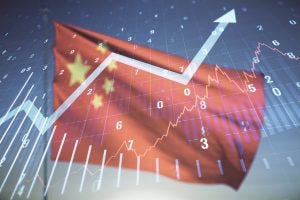
The acquisition of CMAB Biopharma comes days after WuXi Biologics bought a Pfizer facility, months after it added a Bayer plant, and a decade after it entered the biomanufacturing space.
Contract development and manufacturing organization (CDMO) is in the news again, just a week after it acquired a single-use biologics manufacturing plant in Hangzhou, China from Big Pharma firm Pfizer.
This time it has entered an agreement to buy over 90% of fellow Chinese CDMO CMAB Biopharma for an undisclosed fee. The deal will add a biologics manufacturing site in Suzhou decked out with 7,000 L of drug substance capacity, liquid and lyophilization fill/finish space, cell-line and process development capabilities, and over 250 staff.

Image: iStock/Igor Kutyaev
In its annual report published today, WuXi Biologics said CMAB is “dedicated to providing bespoke development manufacturing services of antibodies and biologics for clients in China and across the globe,” and that the acquisition will help WuXi Biologics “add more projects and capacity and ensure sustainable high growth.”
Zero to 430,000 L of capacity
WuXi Biologics opened its first biomanufacturing facility in WuXi City, China in 2012. The plant offered 5,000 L of fed-batch and perfusion bioreactor capacity.
Since then, the company has mushroomed into a major player in the global CDMO space through heavy investment and M&A activity.
In China alone, the CDMO has a facility in Hangzhou offering microbial fermentation, on top of the Pfizer buy, along with operational sites in Shanghai, Wuxi, and Suzhou. A second site in Shanghai is expected to open this year, while sites in Shijiazhuang and Chengdu are set to begin operations in 2022 and 2023, respectively. Outside of China, WuXi Biologics has acquired facilities in New Jersey, and Germany �– adding a drug substance plant from Bayer for €150 million ($185 million) late last year – and has construction projects underway in Ireland, Singapore, and Massachusetts (US).
As such, the firm has previously predicted it will have 280,000 L of bioreactor volume operational by next year, but according to its annual report this will almost double by 2024.
“[The Group] closely monitored market demand and adjusted its capacity expansion plan accordingly. Due to increasing demand and surge of late-stage projects, its planned global manufacturing capacity is expected to reach around 430,000 liters after 2024.”
By our tally, WuXi Biologics will easily be the largest CDMO based solely on single-use drug substance capacity, if it isn’t already.
For the full year 2020, the CDMO reported revenue of RMB 5,612 million ($861 million), up 41% on the year prior. The firm also reported net profit of RMB 1,693 million ($260 million), up 67.5% year-on-year, attributed to: “The Group’s robust increase in the number of integrated projects; (ii) significant improvement in capacity utilization; (iii) continuous operational efficiency enhancement (iv) strong growth of milestone revenue with higher gross margin, partially offset by ramp-up of new facilities.”
About the Author
You May Also Like

schedl_b_and_w.jpg?width=100&auto=webp&quality=80&disable=upscale)
schedl_b_and_w.jpg?width=400&auto=webp&quality=80&disable=upscale)


